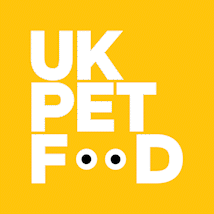Sourcing Ingredients Sustainably
Pet owners want to feed their pets in a way that respects the environment
When it comes to pet food ingredients, we are conscious of sourcing pet food ingredients responsibly and sustainably. Sustainable sourcing means ensuring to the best of our abilities that the ingredients we use positively impact the local community and ecosystems from which they are sourced.
SUSTAINABLE AND HEALTHY BY-PRODUCTS
Most ingredients in pet food are by-products from the human food chain. These are not just leftovers but high-quality, sustainable ingredients that people usually don’t eat. Cats and dogs will happily and healthily eat organ meats or the less pretty trimmings. This also means that no animal is raised specifically for pet food and makes sure as much of the delicious and nutritious food that is already produced is consumed. Manufacturers commonly use beef, lamb, poultry, pork, fish, and game and select these based on nutrient profile and ingredient digestibility.
REDUCING THE IMPACT OF FOOD WASTE
By using these by-products in pet food, we are reducing the impact on food waste, the availability of commodities and minimising the environmental footprint of producing foods specifically for use in pet food. This benefits the farmer and helps reduce food cost inflation by providing an outlet for what would otherwise be costly to dispose of.
FISH AND SEAFOOD ARE PRECIOUS RESOURCES
Similarly, surplus fish products are parts of a fish that remain after the fish fillets are removed for the human food supply chain. In addition to being nutritionally beneficial, using fish by-products represents an environmentally and socially responsible practice, as all the protein sources of the fish are used while not competing with the human food supply. Overfishing is a key challenge facing all of us in the human and pet food sector. Replacing vulnerable species with more sustainable species or alternative proteins is another change many manufacturers continue to adopt and explore.
PLANT-BASED INGREDIENTS
Plant-based (grain and vegetable) by-products such as soy leftovers, broken rice, and beet pulp are also used in pet food. In recent years, additional plant protein ingredients have become increasingly viable options. These include pea protein, potato protein, and rice protein. Changes in the pet food market mirror those in the human food industry, catering to vegan, vegetarian, and flexitarian consumers. The selection of plant-based ingredients will have an impact on the format, texture and appeal of the finished product and manufacturers consider this factor when selecting a plant protein or selection of plant proteins. As always, the key consideration is to ensure that a pet’s diet is complete and meets their nutritional needs.

